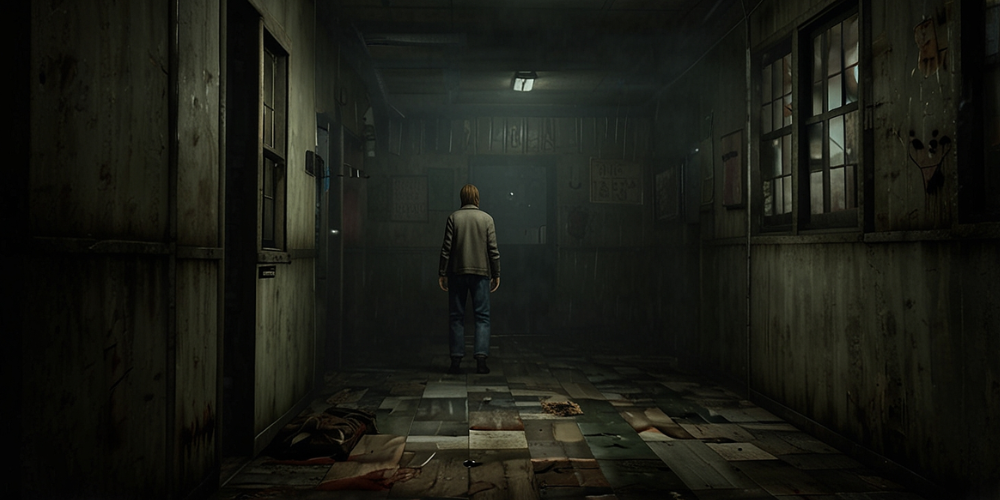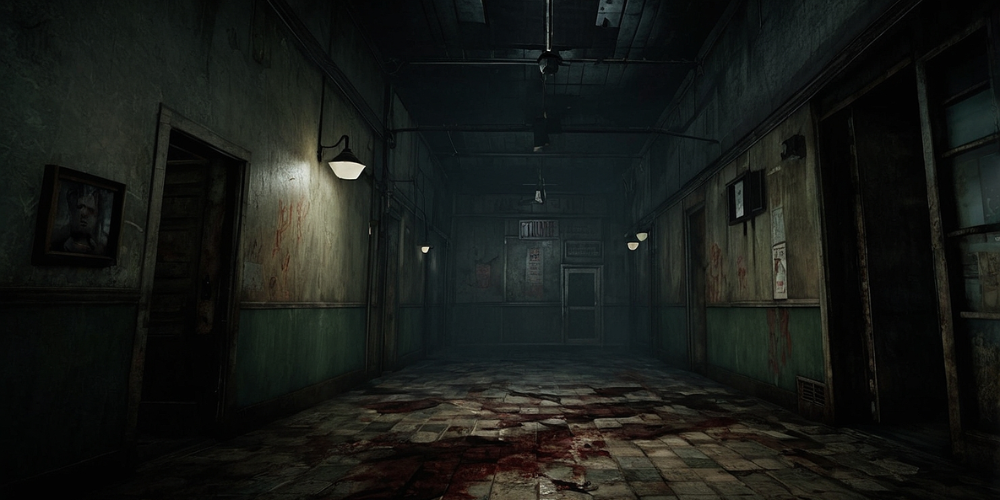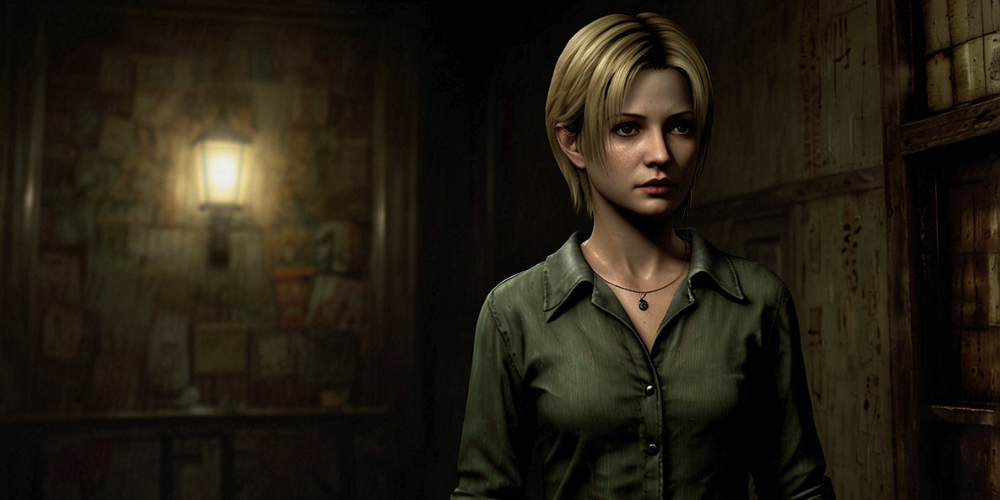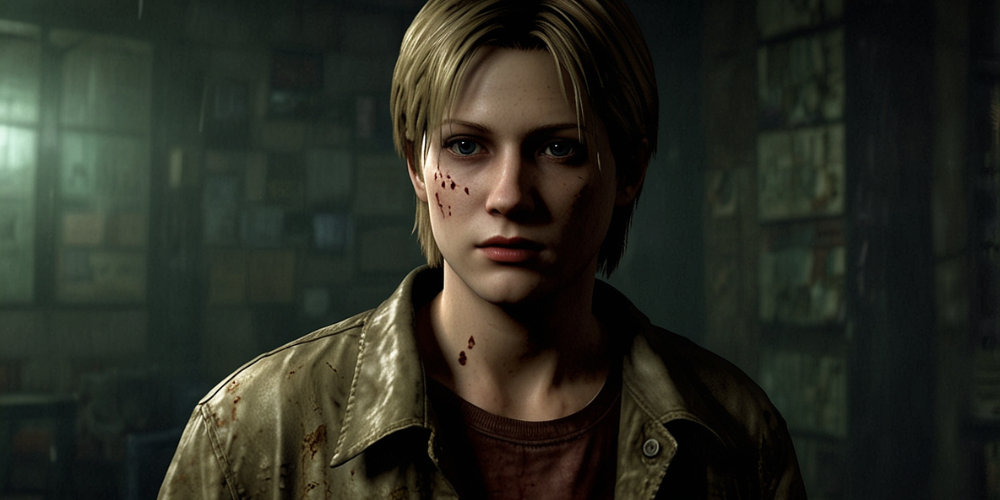Psychological Horror Elements in Silent Hill 2
Sep-30-2024

As I ventured into the twisted realms of Silent Hill 2, I found myself drawn deeper into a labyrinth of my own psyche. This game goes beyond mere survival horror; it's an exploration into the eerie depths of the human psyche. The psychological terror it conjures lingers long after the screen fades to black, leaving me questioning my reality.
The Enveloping Atmosphere
From the very onset, the dense fog and eerie silence envelop me like a shroud, creating an oppressive atmosphere that resonates with dread. The absence of other people, aside from the haunting figures that stalk me, accentuates a profound sense of isolation. I often find myself wandering through the desolate streets, feeling as though I’m the last remnant of humanity, grappling with my own insecurities and fears.
The Haunting Reminder of Guilt
The psychological horror hinges on personal guilt. The story of James Sunderland, our protagonist, intertwines with my thoughts, making me reflect on my own past regrets and failures. I feel like an observer, witnessing James confront his demons as they morph into grotesque manifestations. The character is plagued by shame and guilt over the death of his wife, Mary, and I can’t help but feel the weight of my own transgressions. Guilt is an insidious emotion, and as I progress, it claws at my consciousness, compelling me to face the shadows of my past.
Monsters as Manifestations
As I traverse the eerie streets, I encounter numerous monstrous forms, each a representation of deeper fears and emotional turmoil. The creatures, from the terrifying Pyramid Head to the disturbing Nurses, serve as visual metaphors for anguish and repressed memories. My heart races as I confront these physical embodiments of dread. They are not mere obstacles; they symbolize James’s struggle with his desires, his fears, and ultimately, his guilt. I find myself questioning the nature of these creatures: are they his enemies, or are they aspects of himself he cannot bear to confront?

The Slippery Nature of Reality
In Silent Hill 2, reality is malleable. As I navigate this disturbing world, the line between subjective experience and objective truth begins to blur. The environment adapts according to James's psyche, and I feel my surroundings shift into something more sinister with every revelation. At times, it seems as if Silent Hill itself is alive, feeding off the guilt and trauma. I can sense that the town thrives on my emotional distress, twisting my perception and making me question what is real. This manipulation of reality creates an unsettling sense of paranoia that clings to me as I explore.
Soundscapes of Dread
The auditory experience in Silent Hill 2 is haunting. The ambient sounds — distant echoes, unsettling music, and the unsettling silence — weave together to create a cocoon of fear. Each creak, every muffled whisper weighs heavily, urging me to acknowledge discomfort. I often found myself tensing at the slightest sound, as if the very environment were a character intent on disorienting me. These soundscapes not only heighten my fear but also serve as reminders of the emotional undertones present throughout the narrative.
Symbolism of the Otherworld
Transitioning between the normal world and the Otherworld is a jarring experience; each shift reveals a more grotesque version of the town. This transformation reflects how trauma can warp reality, rendering it unrecognizable. As I move from familiar surroundings into the horrifying Otherworld, the symbolism hits me hard. What was once a town filled with memories slowly reveals its monstrous nature, much like how pain can distort my own recollections—a visceral reminder that healing often comes with facing the discomfort of suffering.

Relationships in Shambles
The characters I meet add further depth to the psychological horror. Each interaction digs deeper into the themes of guilt, loss, and emotional struggle. The characters aren't mere side notes; they are mirrors reflecting aspects of my psyche. Mary, through her absence, lingers heavily in the narrative. I confront Angela and Eddie, each embodying a different aspect of trauma and denial. Their stories overlap with James’s, creating a haunting tapestry of interconnected psyches engulfed by darkness. It strikes me how vital these relationships are in shaping my experience, reflecting the human capacity to connect yet simultaneously isolate.
Restricted Agency and Control
A profound sense of helplessness permeates the game. As I attempt to navigate this labyrinthine nightmare, I feel trapped in James's choices, grappling with emotions beyond my control. The mechanics mimic this struggle; often, I’m forced to make rash decisions that reflect the chaos swirling within. This deliberate restriction strips away any semblance of agency, forcing me to confront the ramifications of undefined choices. I realize how paralyzing it can feel to exist amid uncertainty, mirroring the weight of my own life decisions.
The Overbearing Weight of Memory
Memory is a recurring theme throughout my journey. I find myself haunted by the remnants of the past, both James's and my own. The game interweaves flashbacks and fragmented memories, encapsulating how trauma can interrupt the flow of time. The emotional weight grows heavier, particularly as I delve into the truth behind James’s actions and his attempts to escape from painful recollections. Silent Hill serves as a symbolic graveyard for these memories, challenging me to acknowledge and process them, rather than ignore their existence.

An Individual Experience of Fear
What struck me most is how the psychological horror in Silent Hill 2 feels uniquely personal. The experience is a reflection of my innermost fears—be it guilt, shame, or the concept of loss. Each player might find different aspects haunting them, reminding me of how subjective fear can be. While I witness James's struggles, I can’t help but draw parallels to my own life, creating an unsettling yet intimate connection with the narrative.
Isolation vs. Connection
The theme of isolation echoes throughout the game. Silent Hill 2 immerses me in a desolate landscape where genuine connection is scarce. The encounters I have, while impactful, often reinforce feelings of loneliness. Each character resides in their emotional tumult, wrapped in their individual grief. Despite moments of companionship with Angela and Eddie, there's an unmistakable chasm that underscores how isolation shapes our perception of reality. I realize that while pain can unify us, it can also sever the ties that bind us to others.
Confronting the Self
Ultimately, the biggest horror lies not in the monsters I encounter but in the reflection I see in James’s struggle. He embodies the fear of facing one’s true self and the guilt that often accompanies acknowledgment. Through my journey, I'm forced to confront a multitude of emotions that I, too, have tried to bury deep. Whether it’s the anger, resentment, or pain stemming from loss, I feel a shift occurring within me. Comprehending the devastation that informs one’s actions becomes paramount, revealing how easy it is to drift into darkness when grappling with unresolved emotions.
The Quest for Redemption
Lastly, at the core of Silent Hill 2 lies the human quest for redemption. As I guide James through his struggles, I find myself resonating with his desire to seek closure. This emotional exploration becomes cathartic, forcing me to reckon with not only the horror I confront in the game but also in my own life. The search for answers and the ability to forgive oneself reverberate throughout, compelling me to reflect on what it means to heal.







